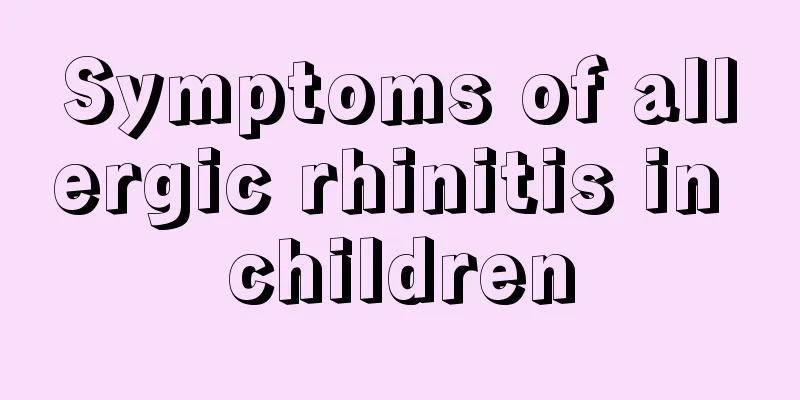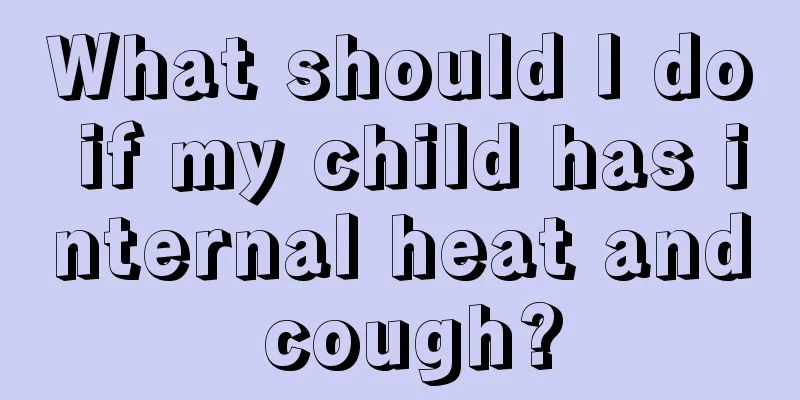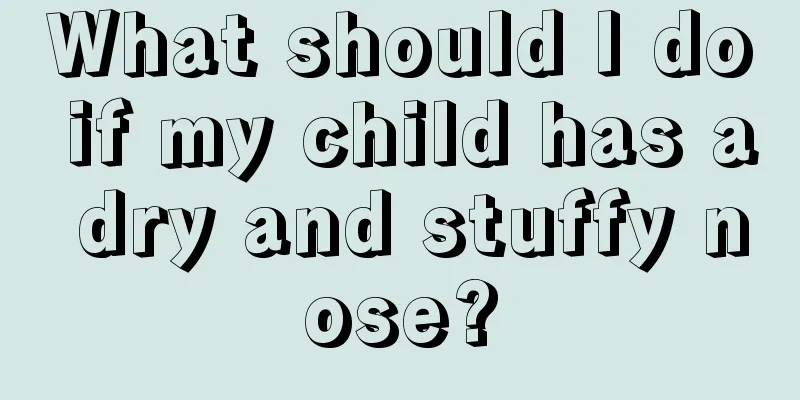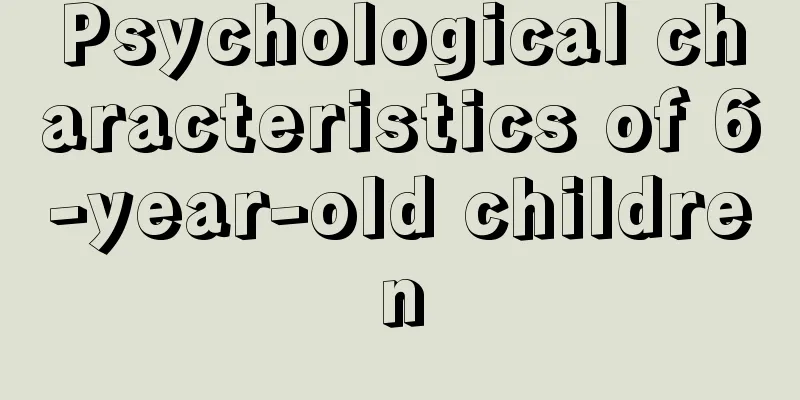Symptoms of allergic rhinitis in children

|
There are many factors that cause allergic rhinitis in children. Factors such as animal hair can cause symptoms of allergic rhinitis in children. If a child suffers from allergic rhinitis, he or she will generally experience symptoms such as itchy nose, cough, and throat discomfort. However, because these symptoms are similar to those of a cold, they are easily overlooked. Therefore, a comprehensive understanding of the symptoms of allergic rhinitis in children can effectively help you identify the disease. If children's allergic rhinitis is not treated in time, it will cause serious harm to the baby's health and may even induce other types of diseases. Therefore, it is recommended that mothers understand the symptoms of allergic rhinitis in children in detail and make correct treatment for their babies in time. Typical symptoms include nasal itching, continuous paroxysmal sneezing, copious watery nasal discharge and nasal congestion. The specific performance is as follows: [Itchy nose and continuous sneezing] There are often several paroxysmal continuous sneezing attacks every day, followed by nasal congestion and runny nose, especially in the morning and at night. Nasal itching is seen in most patients, and sometimes there is also itching outside the nose, soft palate, face and external auditory canal. Eye itching is more obvious in seasonal rhinitis. [A lot of clear nasal mucus] When you sneeze, a lot of mucus will flow out. However, when the acute reaction tends to weaken or disappear, the discharge may decrease or become thicker; if secondary infection occurs, it may become a mucopurulent discharge. [Nasal congestion] The degree of severity varies, and it may be unilateral or bilateral, intermittent or continuous, or alternating. [Olfaction disorder] If it is caused by mucosal edema or nasal congestion, it is usually temporary. Those caused by persistent mucosal edema leading to olfactory nerve atrophy are mostly persistent. You should now understand the symptoms of allergic rhinitis in children. Allergic rhinitis in children can also affect the baby's sleep and cause the baby's biological clock to be disrupted, which will seriously affect the baby's healthy growth. In addition, breathing through the mouth for a long time will also affect the defense of the facial bones, affect the baby's appearance, and have an impact on the baby's life. |
<<: What to do if your child has toothache
Recommend
What to do if your baby has a fever and poops green
Parents need to pay special attention to the baby...
Reasons for a newborn's hoarseness at 21 days old
The body of a newborn is very fragile, and any sm...
What's going on when a child is breathing heavily?
Children's panting may be caused by a cold, n...
What to do if premature babies have high jaundice
Jaundice is a common phenomenon in newborns. Jaun...
What is the cause of foam in the child's urine?
Some people have abnormal urine, so they need to ...
Baby back rash_baby back rash
The baby's skin is delicate and the body'...
What to do if your child has irregular heartbeat
Every child will encounter some health problems o...
How to treat nephrotic syndrome in children
Children with nephrotic syndrome have a relativel...
Why do children often have abdominal pain?
If a child often has abdominal pain, the family s...
How to treat children's autumn prickly heat?
Usually, skin diseases such as prickly heat are m...
Is it okay for babies to use air conditioning in winter?
Winter is a difficult season for younger babies. ...
Children often do these to prevent myopia
Myopia among children is a very common phenomenon...
What should I do if a 13-year-old girl has hereditary big toes?
In fact, a disease like bunion is not a very scar...
The child ate ice cream and coughed
The common cause of children's coughing is in...
Diagnosis and treatment of chlamydia infection in babies
If a baby is infected with chlamydia, it will ser...









